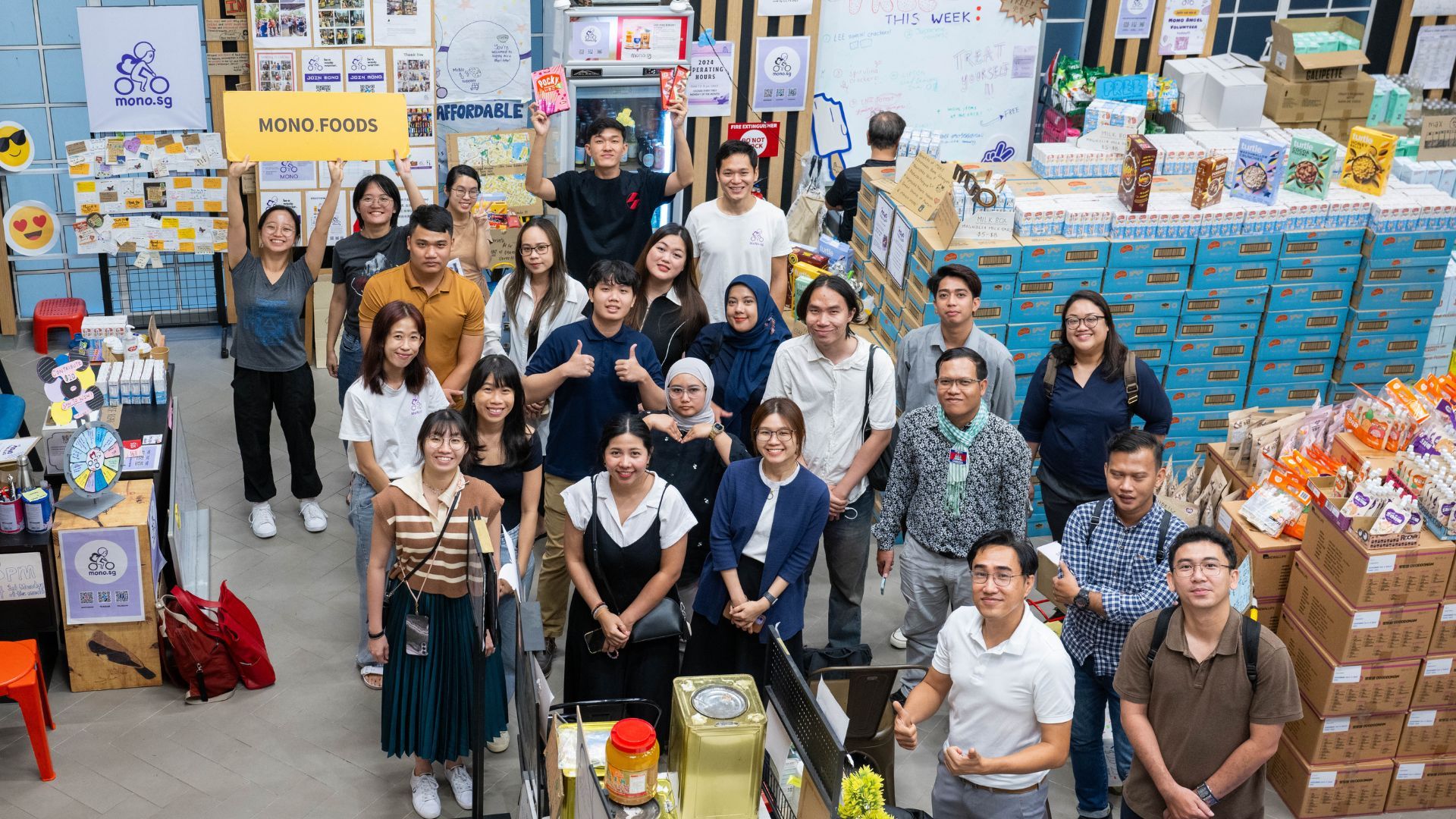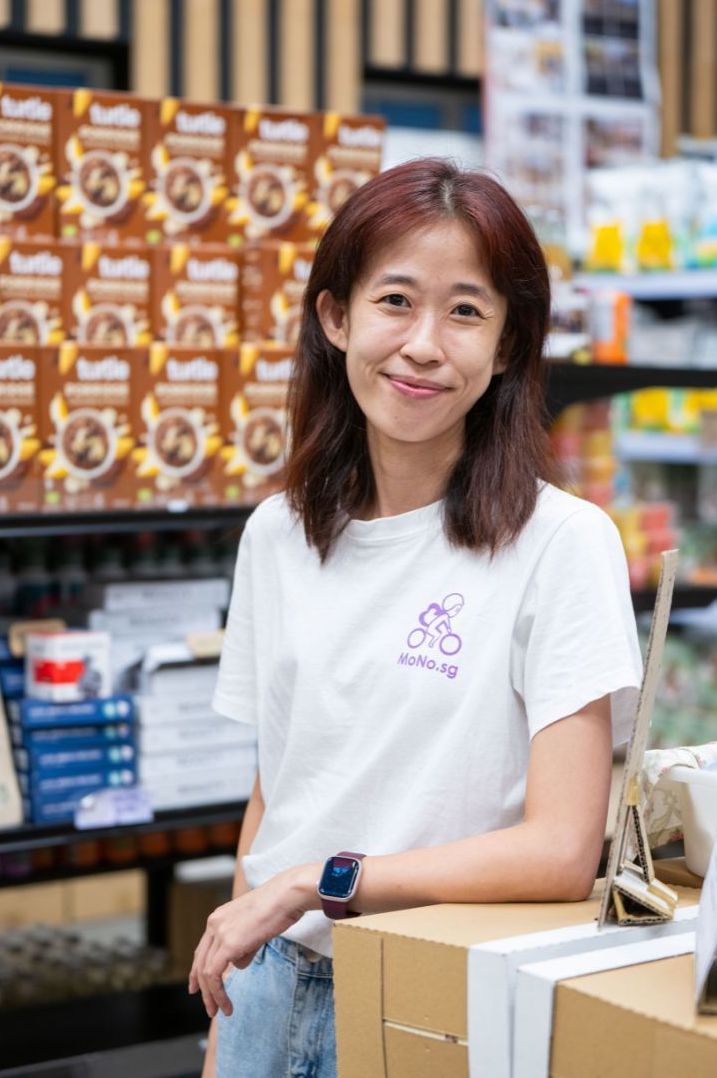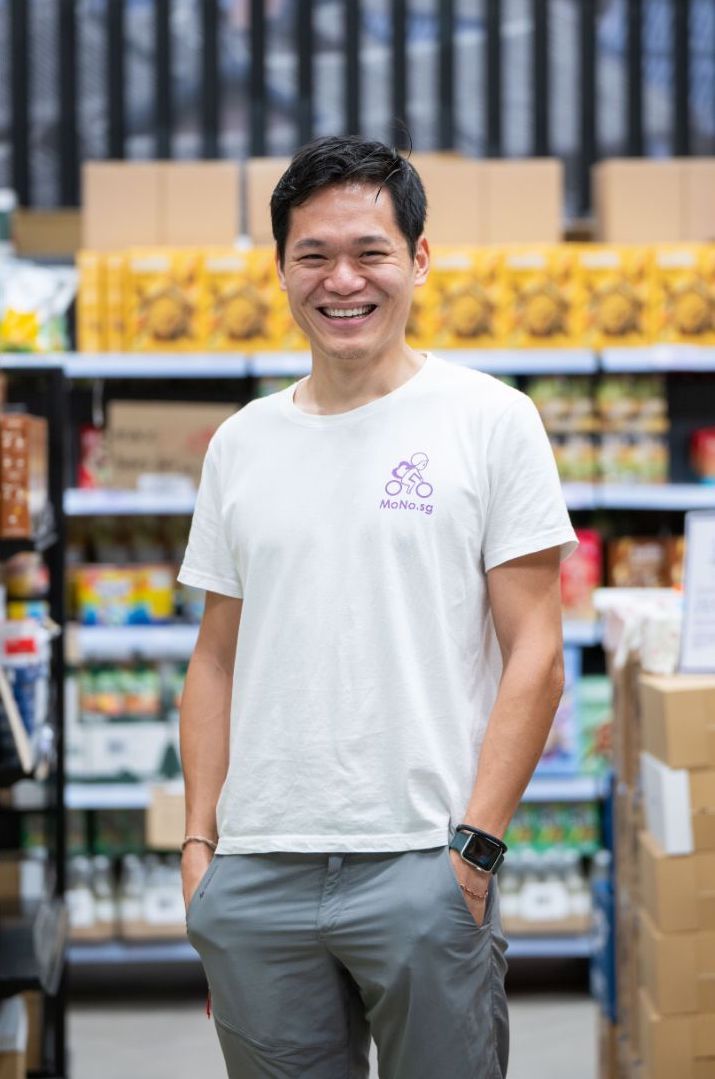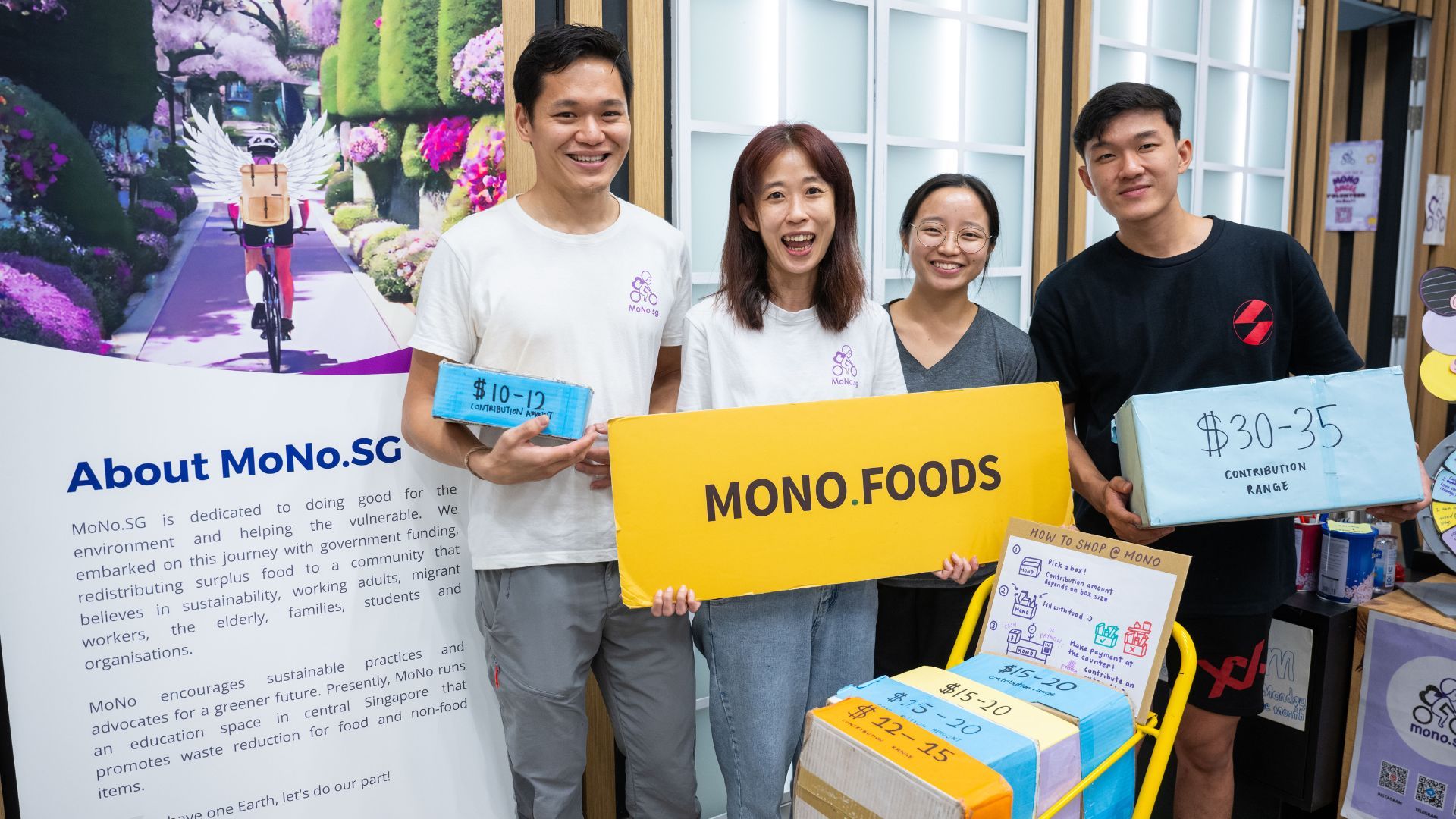This social enterprise in Singapore proves that food deserves a second chance
Introducing Singapore-based MoNo Foods co-founded by Lorraine Koh and Leonard Shee
Think back to your last grocery shop. As Filipinos, the first thing we often check when buying food—aside from the prices—is the "best before dates." We tend to spend more time choosing products with a longer shelf life. However, untouched food often becomes surplus and eventually ends up in the bin or incinerator, contributing to the growing problem of food waste in the Philippines.
In 2023, a Food Consumption Survey by the Department of Science and Technology–Food and Nutrition Research Institute (DOST-FNRI) reported that 1,717 metric tons of food are wasted every day in the country.

While food waste and hunger are global issues, it's evident that we can take steps to at least reduce this waste. Case in point: Singapore-based MoNo Foods, a sustainability-related social enterprise, which the Philippines can learn from regarding sustainability in food.
Funded by the National Youth Council in Singapore in January 2022, this young enterprise aims to prevent surplus food from going to waste and support the marginalized sector through food donations.

The concept of becoming a "food rescuer" began when the co-founders noticed a significant change in public purchasing behavior during the pandemic. People preferred buying groceries online, leaving physical retail stores with a large amount of unsold food going to waste.
At MoNo Foods located at the Yue Hwa Building in Chinatown, you can find various foods, most of which are past their "best by" date but still edible. During the Journalist Visit Programme of the Singapore International Foundation, MoNo Foods co-founder Lorraine Koh told Manila Bulletin that since they aim to reduce food waste rather than operate as a profitable enterprise, they use a box system where buyers can stack up products they want to buy and "donate" through a pay-as-you-wish method, depending on the size of the boxes.

"We stress to consumers coming into MoNo that they are contributing to the sustainability cause, not just buying items,” Koh shared, noting that this kind of education binds like-minded individuals who advocate reducing waste. “Their contribution will help form a greener world. We use a box system, where a bigger box means a bigger contribution amount.”
This concept is not new in the Philippines. We have seen how community pantries during the pandemic demonstrated hope in reducing food waste and promoting humanity through the concept: "Kumuha ng naaayon sa pangangailangan. Magbigay ng naaayon sa kakayahan."
However, MoNo Foods' advocacy goes further as it bridges retailers and the public in reducing food waste and carbon footprint, which is crucial in these challenging times of sustainability.

"A lot of energy is needed to deal with food waste due to its high water content. By redistributing food items that were slated for the landfills, we reduce the amount of food going to incinerators, saving energy needed to power the incinerator and preventing further global warming," explained co-founder Leonard Shee.
Now is the time to be a food rescuer and give food a second chance. If you get a chance to visit Singapore, you might want to shop at MoNo Foods, where you can be assured that the food you eat is safe and that you are helping the environment.